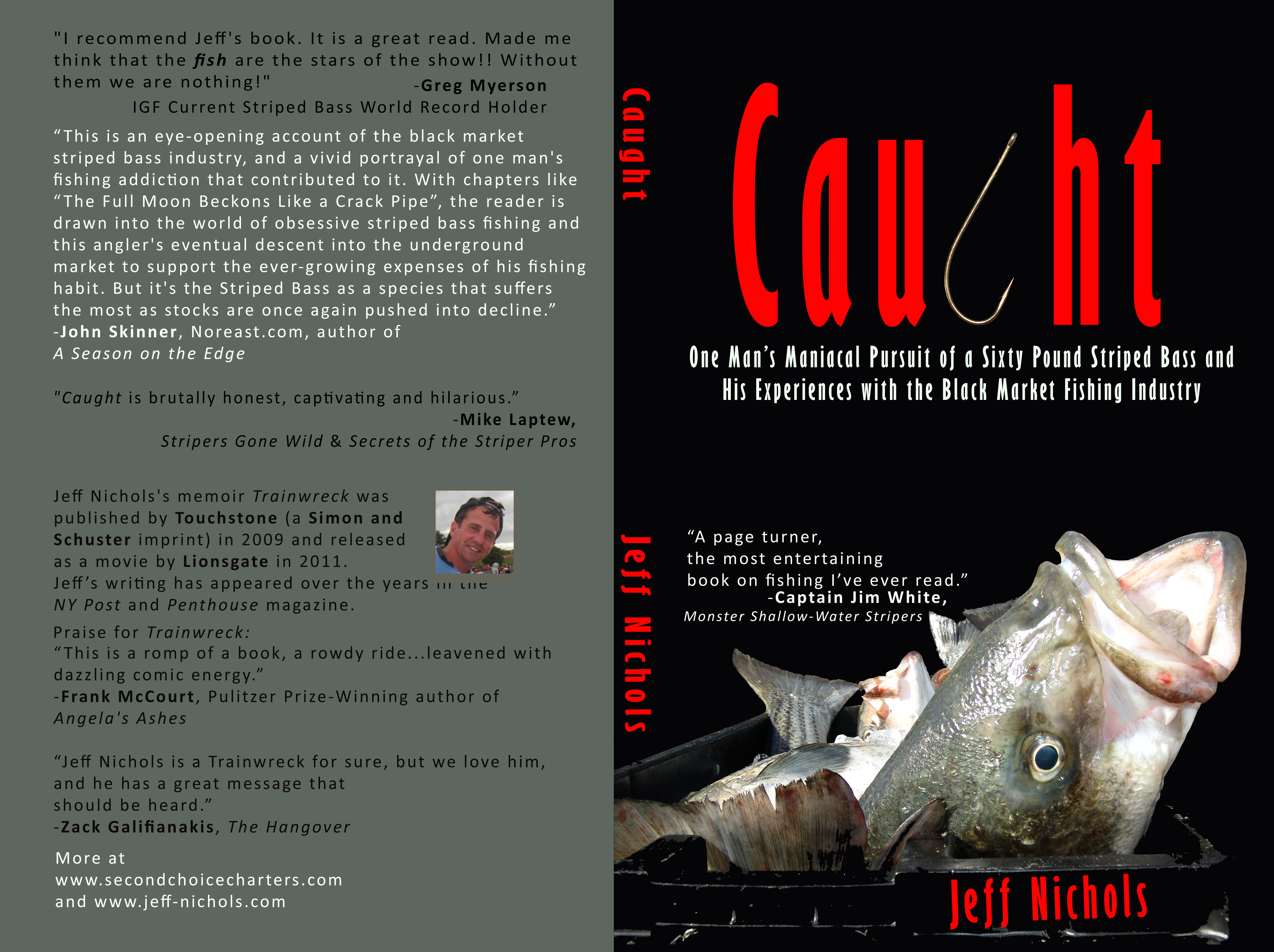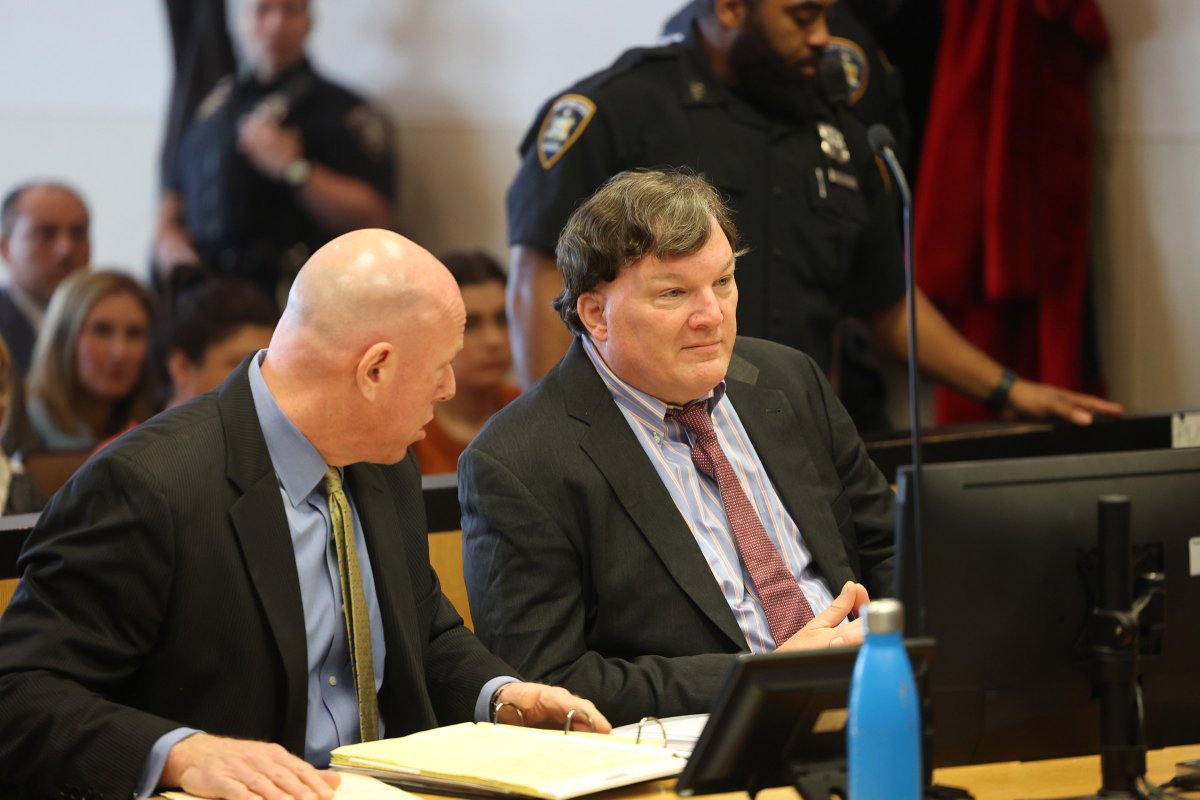Hamptons Beach Reads: "Caught" by Jeff Nichols

In Caught (Amazon, Kindle), with arguably one of the most unusual prefaces and acknowledgments to accompany a nonfiction tell-all book, Jeff Nichols, 47, confesses, with blunt remorse and an engaging style, his “Maniacal Pursuit of a Sixty Pound Striped Bass and His Experiences with the Black Market Fishing Industry,” the subtitle of this just-released, self-published memoir.
Up-to-date and true, though he wishes it were not, he did change “some names for obvious reasons” (he expects to get “some flak if not worse”). The title “Caught” is loaded, alluding to both fishing and the law (he was once arrested). He could, however, no longer ignore the dictates of his conscience: what he saw, what he did “fishing Montauk for 15 years.” Though he still works at being “a six-pack charter boat captain” (secondchoicecharters.com), he heeds scrupulously to the catch-and-release policy for fish over 40 inches.
Nichols had mixed feelings about writing the book, he says in line one: “Sure, I have always desired literary notoriety and am admittedly a media whore,” but why “piss off” the cooks and commercial fishermen and draggers (oh, how they waste!)? Alienate the legitimate, licensed lure and linesmen just trying to make a living, Montauk guys who befriended him over the years, trophy-fishing buddies who are becoming an endangered species? Why would he even risk killing his own career? The answer, he says, referencing the Al Gore documentary, is an “inconvenient truth” he could no longer dismiss—that striped bass, especially “slobs” (the big female breeders),“so abundant only a few years ago” after being reclaimed, are once again on their way to extinction because of overfishing, much of it from “illegally submerged gill nets” and from mycobacteriosis (70% of fish in Chesapeake Bay have this disease). He realizes he must seem like a “hypocrite”—he used to bootleg striped bass (selling without a license, which was not illegal in the ’70s and ’80s). As late as last fall he was selling fish to restaurant owners out of the trunk of his car.
Caught is a nervy, quotable, important exposé, full of lively anecdotes, marginal colorful characters and a sobering ambivalence about the D.E.C. (Department of Environmental Conservation). Nichols is also up front about his lack of qualifications: “I am not a scientist; I am just a fishing addict with an ego problem. I happened to be armed with a captain’s license I got by filling out a coupon I saw on the back of a Cracker Jack box.” He went to boarding school, tennis camp, Hobart College, wore madras pants, went skiing in Vail, did a bit of coke and acid, but his years as a stand-up comic and humor writer gave him an obvious inability to deceive himself. He had also, early on, fallen in love with fishing (“addicted”) and then with “Mecca,” a.k.a. Montauk. He obviously learned to roll with the easy illegalities that come with fishing along the Eastern seaboard (at their worst off the North Carolina coast).
Unless you live in a cave, he says, “If you are a fisherman you know that the striped bass stocks are in trouble.” The book is thus a challenge to the pros, at a critical time, when the tourist season is heating up (but not yet the waters). It’s also a clarion call to the rest of us and to the bureaucrats who harass commercial fishermen with restrictive laws and paperwork but turn the other way when it comes to enforcement.
Why self-publish, especially after previous books did well (Simon and Schuster, film adaptations)? Nichols is dyslexic (it’s a nice touch to see some mistakes left in), but family and friends slowed him down catching errors, and he was “in a hurry” to get the book out for the coming striper season, which has just begun. He also wanted to ensure that once he had incriminated himself publicly, he couldn’t possibly go back to selling fish or weighing in with a trophy slob. In an email to me, he writes that a captain from Rhode Island told him that “100% of all the striped bass sold in Newport over the summer is brought through the back doors.” As for Long Island, from July to October, “selling striped bass illegally is a multi-million dollar industry.” So the next time we see striped bass on a menu…



